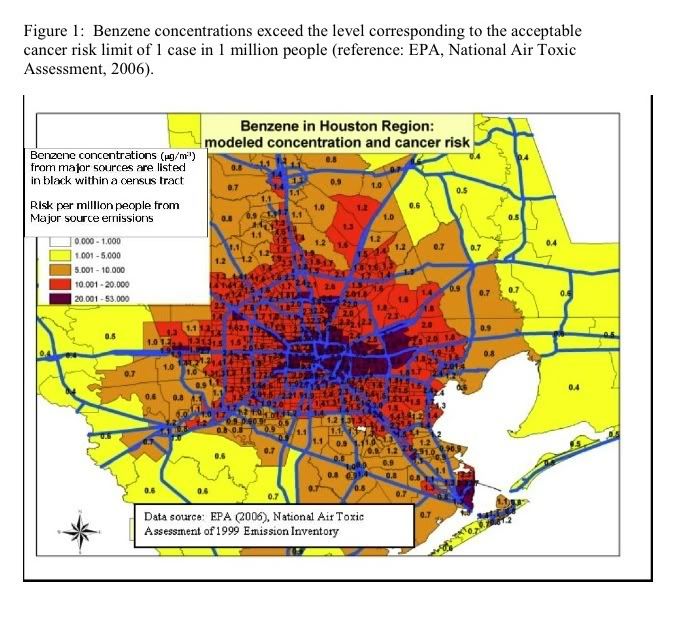Houston mayor challenges oil refinery over cancer-causing pollution
In what's being called an "unusual request," Houston Mayor Bill White has asked the Texas Commission on Environmental Quality to grant a hearing before a judge on the latest permit application for a Houston petrochemical refinery, citing concerns over its high emissions of cancer-causing pollution.
The case highlights a theme that's been largely missing from the national debate over expanding oil production -- namely, the damaging health effects associated with toxic air releases from refining facilities.
Located in Houston's Ship Channel, Lyondell Chemical Co. is one of the nation's largest emitters of benzene, a toxic chemical that's been linked to leukemia and other cancers. The Lyondell refinery releases more benzene emissions per barrel produced than other refineries nationwide and thus presents an "unreasonable risk" to Houston residents, city officials told the Houston Chronicle:
"If the company believes that it's just fine to put tons and tons of benzene in the air," White said in an interview, "then we would like to hear what scientific evidence they have that benzene is good for you."
White has long been an advocate for cleaning up Houston's dirty air, creating a task force to examine its health effects. In most of the Houston region, where there are numerous petrochemical refineries, ambient air concentrations of benzene exceed the Environmental Protection Agency's risk guidelines, which deem as "acceptable" a risk that leads to 1 case of cancer in every 1 million people. Unlike some other states, Texas does not have its own benzene emission standard.

This map from the report "Houston Regional Benzene Air Pollution Reduction: A Voluntary Plan for Major Sources" (pdf) is based on 2006 EPA data. Click on the image for a larger version.
Last year Houston released a report (pdf) detailing a voluntary plan for reducing benzene emissions from major sources. The report ranked Lyondell as the top benzene risk for the region and called for it to take a number of steps to control emissions. Frustrated with the pace of progress through such voluntary measures, White recently said he would use a city nuisance ordinance to punish plants that did not cut releases.
The report also noted that benzene pollution is an especially serious problem in east Houston, where there are many lower-income and minority neighborhoods. East Houston is also home to some of the city's oldest Latino communities.
Mayor White's fight to clean up his city's refineries offers an important cautionary tale for our times: If the current political push to expand offshore oil drilling succeeds, many communities across the South and elsewhere will also see an expansion of the petrochemical refining infrastructure -- and more pollution troubles like Houston's now grappling with.
Tags
Sue Sturgis
Sue is the former editorial director of Facing South and the Institute for Southern Studies.
